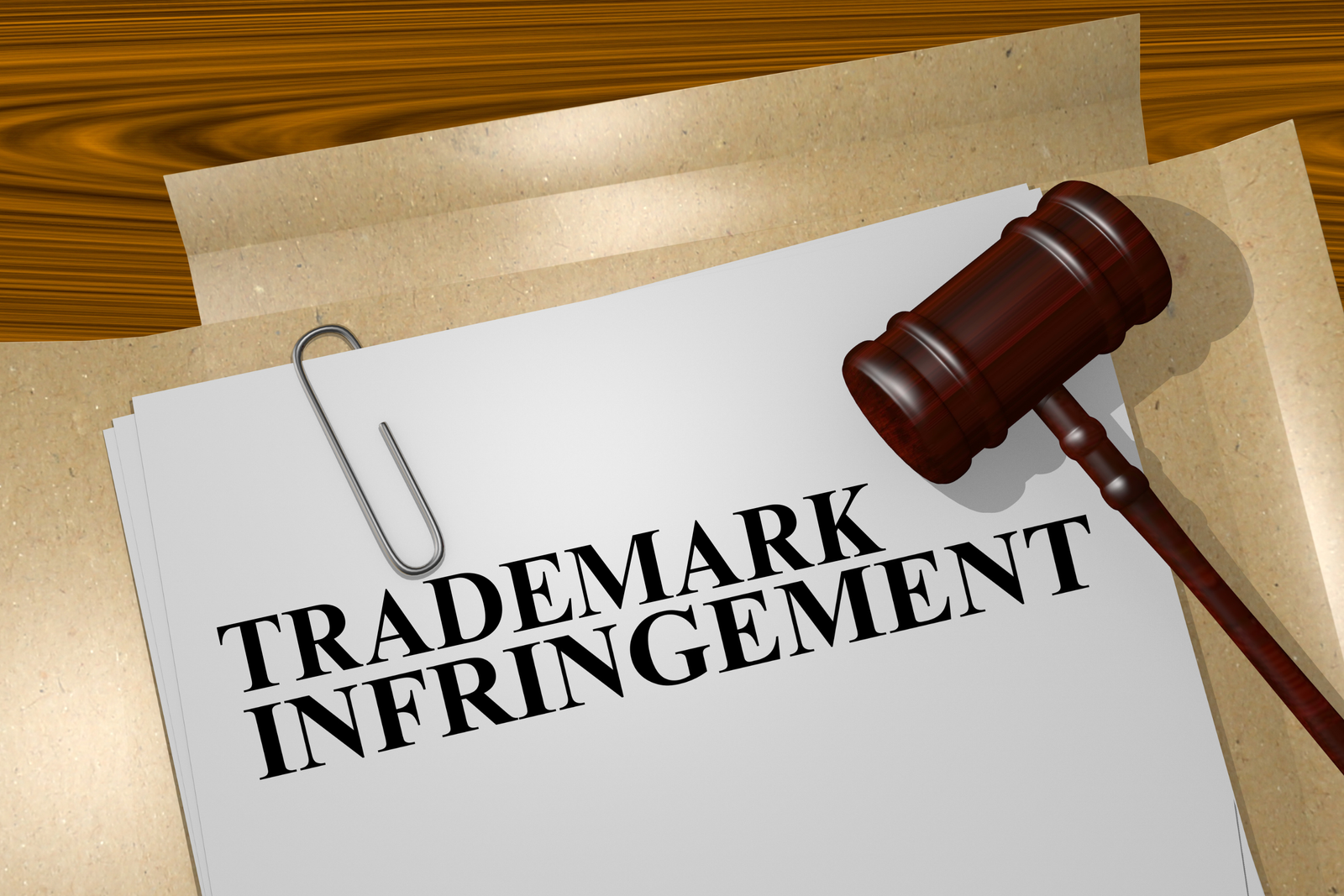
Comprehensive Trademark Protection and Enforcement
What Is Trademark Infringement?
Trademark infringement occurs when a person or entity uses a trademark—or a mark that closely resembles it—without the authorization of the rightful owner, causing potential confusion among consumers regarding the origin of goods or services. This misuse violates the trademark owner’s exclusive rights, leading to potential legal and financial consequences for the infringer.
Key Aspects of Trademark Infringement
Unauthorized Use: Trademark infringement involves the unauthorized use of a trademark. This applies even when the mark is used on different goods or services if it causes confusion.
Confusing Similarity: An infringing mark doesn’t need to be identical to the original; it just needs to be similar enough to create confusion among consumers.
Likelihood of Confusion: Courts evaluate several factors, such as the similarity of the marks, the products or services involved, and the consumer demographic, to determine whether confusion is likely.
Legal Consequences:
- Injunctions: A court order requiring the infringer to stop using the mark.
- Monetary Damages: Compensation to the trademark owner for any losses incurred and for any profits made by the infringer.
- Attorney’s Fees: In some cases, the infringer may be required to cover the legal costs of the trademark owner.
- Criminal Penalties: Willful or fraudulent misuse, especially counterfeiting, can lead to criminal charges.
Value of Registration: Although not essential for a trademark infringement claim, registering a trademark strengthens the owner’s rights and simplifies enforcement.

Types of Trademark Infringement in India
Documents Required for Filing a Trademark Infringement Case
- Trademark Registration Certificate : Proof of ownership of the trademark, establishing the owner’s rights.
- Evidence of Infringement This may include any material that shows the unauthorized use of the trademark, such as:
- Copies of infringing products, packaging, or advertisements.
- Witness testimony from individuals who observed the infringement.
- Expert opinions on the likelihood of consumer confusion or brand dilution.
- Statement of Damages : A detailed estimate of the financial impact the infringement has caused, including lost revenue and harm to brand reputation.
- Power of Attorney : A document authorizing a legal representative to act on behalf of the trademark owner in the case.
- Court Filing Fees : The required fees for initiating the lawsuit, as determined by the jurisdiction.
Professional Fees
Responding to a Trademark Infringement Notice
- Exclusive of Government Fees
- From drafting formal replies to negotiating settlements, our experts will ensure your rights are protected. We also offer guidance on fair use defenses, licensing negotiations, and compliance measures to help you manage and resolve any infringement claims professionally and efficiently.
- No hidden charges
Issuing a Trademark Infringement Notice
- Exclusive of Government Fees
- Our professionals will guide you in documenting the infringement, preparing a clear and effective cease-and-desist notice, and setting the groundwork for any potential legal proceedings
- No hidden charges
- .
- .
How to Avoid Trademark Infringement with Covering Taxes
Procedure for Filing a Trademark Infringement Suit
Gather Evidence: Covering Taxes’ team of IP specialists will assist you in collecting relevant documents, images, samples, and any necessary proof that supports the infringement claim, ensuring your evidence is complete and strong.
Cease and Desist Letter: Our experts can draft and issue a professional cease-and-desist letter to the infringing party on your behalf, aiming to resolve the issue without resorting to litigation, saving you time and cost.
Consultation with Expert Attorneys: With Covering Taxes, you’ll consult with seasoned IP lawyers who will assess your case’s strengths and advise on the best legal approach, giving you a clear path forward.
Jurisdiction Selection: Our legal team will guide you in selecting the most effective jurisdiction for filing the suit, based on factors such as where the infringement occurred or where the infringer operates, ensuring maximum impact for your case.
Complaint Preparation and Filing: Covering Taxes attorneys will meticulously draft the formal complaint, detailing the infringement and articulating your claims for relief. We handle the entire filing process, making sure all paperwork is accurate and timely.
Complaint Serving: We’ll take care of officially serving the complaint to the infringer, following legal protocol to notify them of the suit, establishing a solid start to your case.
Discovery Process: Our legal team will manage the evidence exchange with the opposing party, utilizing comprehensive discovery strategies to strengthen your position.
Pre-Trial Motions: Covering Taxes’ attorneys will submit any necessary motions, such as for dismissal or summary judgment, leveraging pre-trial steps to streamline the case in your favor.
Trial Representation: If the case proceeds to trial, our experienced IP lawyers will represent you in court, presenting evidence, and delivering arguments to protect your trademark rights effectively.
Judgment and Remedies: Covering Taxes will ensure you receive any awarded damages or injunctions and will assist in enforcing the court’s decision, supporting your business to protect and reclaim your intellectual property.
Defenses Against Trademark Infringement Explained
Fair Use:
- Descriptive Fair Use: When a term is used descriptively, rather than as a brand, to truthfully describe a product or service. The usage should not be misleading or cause confusion.
- Example: A bakery describing its product as “Best Chocolate Chip Cookies.”
- Nominative Fair Use: Allows reference to a trademarked product or service to identify it truthfully without creating confusion regarding the source.
- Example: A repair shop advertising that they work on “Ford” vehicles without implying Ford’s endorsement.
- Descriptive Fair Use: When a term is used descriptively, rather than as a brand, to truthfully describe a product or service. The usage should not be misleading or cause confusion.
Prior Use: If a party used a trademark within a specific geographic area before the official registration by the trademark owner, they may have established rights to continue using the mark in that area, serving as a defense against claims of infringement.
Abandonment: If a trademark owner stops using the mark for an extended time without intending to resume, the mark may be considered abandoned. This could allow others to use the mark without infringing, as it may no longer be protected.
Genericide: A mark can lose its protection if it becomes a common term for a product or service, rather than identifying a specific brand. In such cases, it is seen as generic and no longer enforceable.
- Example: “Aspirin” was once a brand but is now a generic term for pain relief medication.
Non-Infringement: The alleged infringer may argue that their use of the mark does not cause consumer confusion regarding the source, making it non-infringing.
Invalidity: The defendant may challenge the trademark’s validity by claiming it should not have been registered in the first place. Successfully invalidating a mark renders it unenforceable.
Non-Use of the Trademark by the Registered Proprietor: If a trademark is unused by its registered owner for a continuous period (often five years or more), it may be susceptible to cancellation, allowing others to potentially claim and use it.
Delay and Acquiescence: If a trademark owner is aware of infringement but delays or seems to consent by not acting, this can weaken their right to enforce the mark later. This defense argues that the trademark owner accepted the infringement by their inaction.
How Our Team Works
Contact Covering Taxes:
Begin with a consultation by reaching out to us via our website, email, or phone.
Share Information:
Provide all details regarding your trademark, the suspected infringement, and any supporting evidence.
Assessment and Strategy:
Our team will evaluate your case and propose a tailored legal strategy for addressing the infringement.
Documentation and Filing:
We assist in gathering required documents and will handle filing the lawsuit in the appropriate court.
Representation:
Our attorneys will represent you throughout the legal proceedings, and vigorously advocate for your rights.


